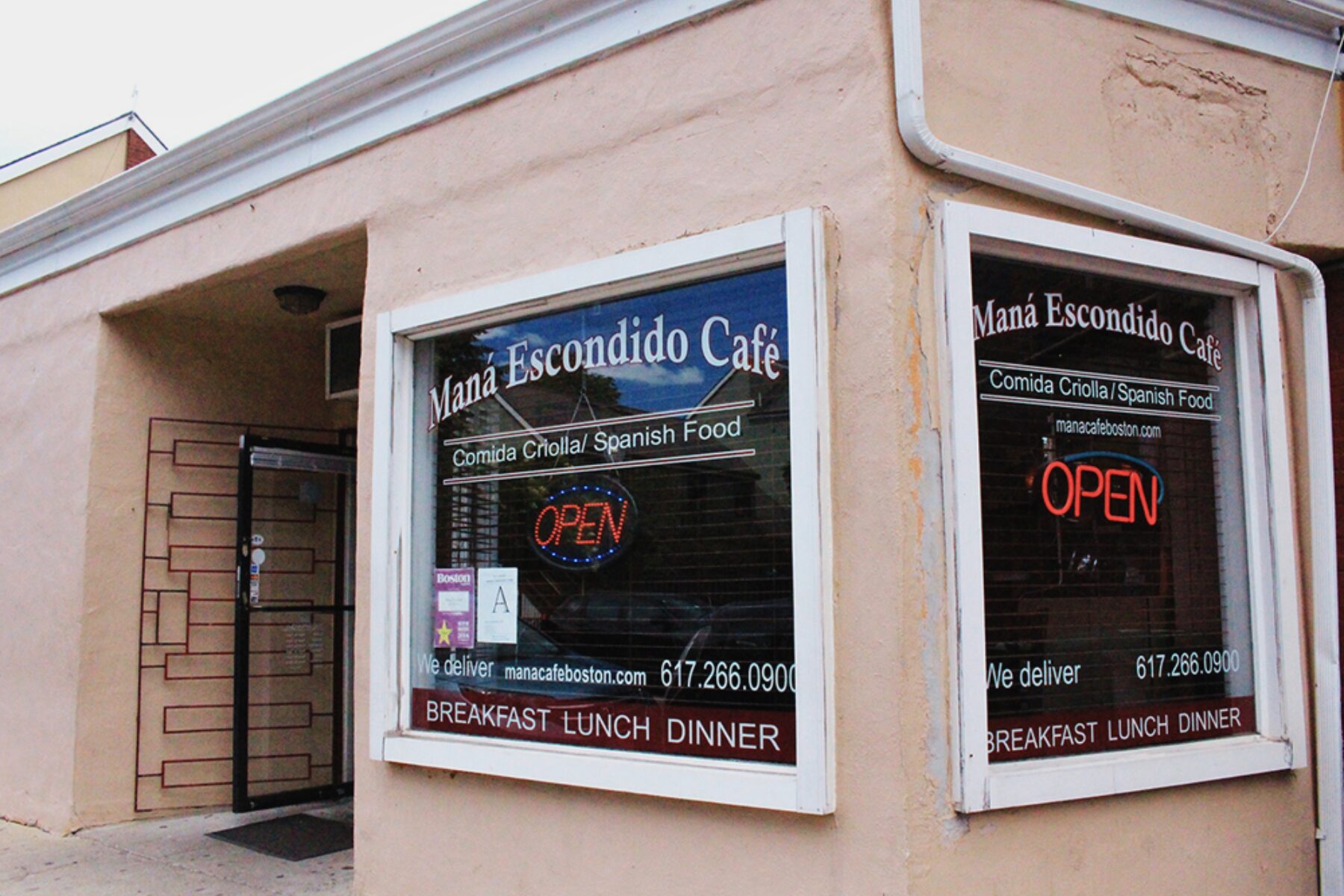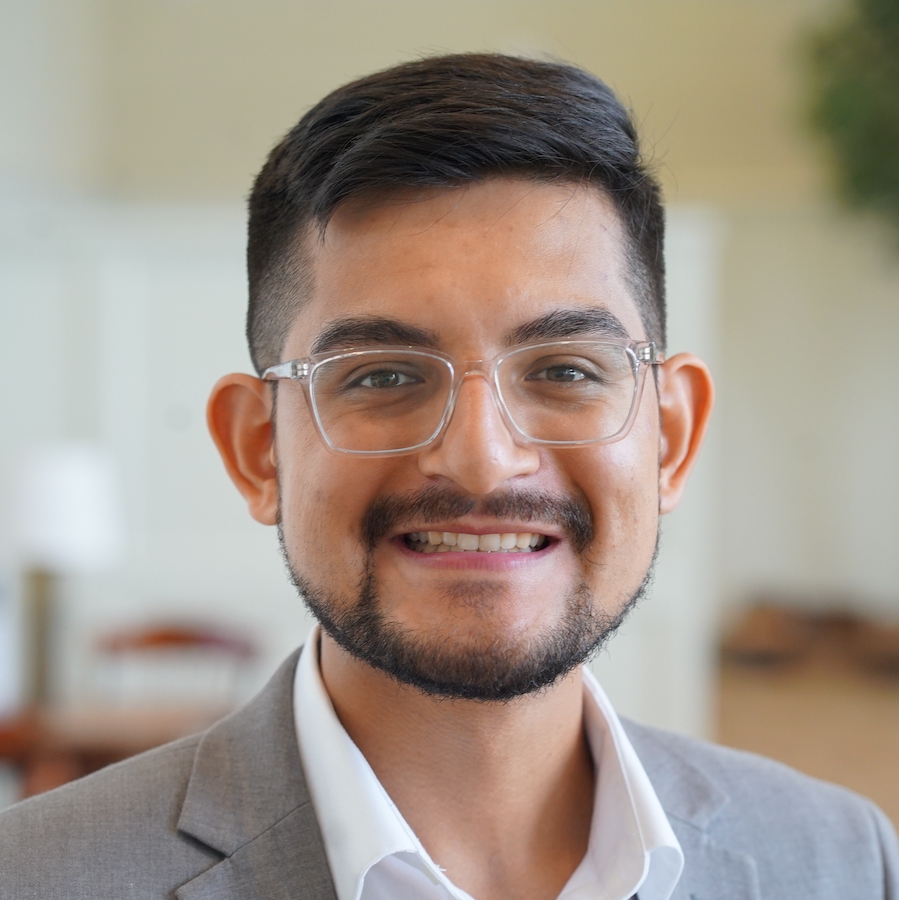Maná Escondido: The Puerto Rican Heritage of Gordon-Conwell
 Daniel Montañez
Daniel Montañez
Across Latin America, January 6 marks the celebration of Dia De Los Reyes (Day of the Three Kings). So here we highlight Gordon-Conwell’s Puerto Rican heritage as part of that celebration of the gifts rendered in honor of the birth of our Savior.
On the South End of Boston there is a small Puerto Rican restaurant called Maná Escondido Café (Hidden Manna Café). This hole-in-the-wall restaurant is not much larger than your living room and kitchen at home, yet arguably serves some of the best Puerto Rican food in the city. Owned by community leader Angel “Papo” Carrasquillo, the name Maná Escondido serves as a testimony to their surrounding neighborhood about the good news of Jesus through home-style Puerto Rican cuisine.
A couple blocks north of Maná Escondido is the Plaza Betances, a historic public plaza that commemorates the Boricua1 community that has called the South End their home for over fifty years.2 South of the café is Lower Roxbury, home to Gordon-Conwell’s Campus for Urban Ministerial Education (CUME). Gordon-Conwell’s rich Puerto Rican heritage is tied to these Caribbean immigrant neighborhoods in Boston. Thus, like the New Testament, the story of Gordon-Conwell cannot be told without remembering the significant contributions of a community in diaspora.
During an era of deep racial tension and animosity, the founding of CUME was nothing short of a miracle. In the spirit of collaboration, black, brown, and white leaders came together to envision a new model of theological education that considered the social realities of urban and immigrant communities in Boston. Prophetic civil rights leader Rev. Dr. Michael E. Haynes was indispensable in his support of and advocacy for the establishment of CUME, and when it came time to appoint its first director, Haynes recollected, “what the Blacks and whites could not pull off, took the leadership of a courageous Puerto Rican prophet from New York City.”3 That leader would be Dr. Eldin Villafañe, who in 1976 became the founding director of CUME and began the work of providing contextualized theological education to underserved urban communities. This was achieved by “basing the curriculum and course offerings on the concrete needs of urban pastors and Christian leaders who were equipped in Bible, theology, and prophetic urban planning.”4 To this day, CUME stands as a well-respected institution for engaging in urban ministerial preparation.
In 1990, Dr. Efrain Agosto (MDiv ’82) was appointed as the new director of CUME and, in collaboration with Villafañe, worked to “expand CUME’s course offerings and establish many new degrees.”5 Under Agosto’s leadership CUME flourished and led the way of innovation in higher theological education, such as an educational program for the deaf (TED).6 Agosto would later go on to lead the Hispanic Ministries program at Hartford Seminary and become a well-established New Testament and Latino scholar in theological education.
In 1997, Dr. Alvin Padilla (MDiv ’84) took the reins as the Dean of CUME. Under his leadership, CUME would expand its programs to the international level, as “Padilla expanded the outreach of CUME globally, offering courses and degrees to students in the Caribbean, Africa, Asia, Latin America, and the Pacific Islands.”7 Padilla also established a partnership with the Church of God of Prophecy and began offering master’s programs to denominational leaders across the world. This would lead to the founding of Gordon-Conwell’s Hispanic Ministries Program (HMP) and the development of the Spanish Doctor of Ministry track in Liderazgo Cristiano. Through these programs, hundreds of Latino/a pastors and ministry leaders who might never be able to afford a seminary education were given an opportunity to pursue flexible, accessible, and contextual theological formation.
Throughout its history, Gordon-Conwell has benefited from top-tier Puerto Rican theologians who have helped lead the Church and has produced some of the most gifted leaders in theological education today. Dr. Pablo Jiménez, a world-renowned professor of homiletics, led the newly named Latino & Global Ministries Program (LGM, previously HMP) from 2017-2021. Dr. Edwin Aponte (MA ’82), a gifted theologian, philanthropist, and administrator, served as the Executive Director of the Louisville Institute for seven years and today serves as the Dean of Drew Theological School. Mujerista theologian Dr. Loida Martell played a formative role in the early years of CUME and today serves as Vice President and Dean of Lexington Theological Seminary. Even Gordon-Conwell’s Board of Directors has benefited from the expertise of national Christian leaders such as Rev. Gabriel Salguero and Rev. Samuel Rodriguez. Finally, Gordon-Conwell has hired several adjunct faculty members who have each contributed to the formation of the global Church, including Dr. Juan Carlos Morales (MA ’01), Dr. Wilmer Estrada-Carrasquillo, Dr. Awilda González Babb (MA ’94, MDiv ’96), and Dr. José Daniel Montañez.
The contribution of the Puerto Rican community to the heritage of Gordon-Conwell cannot be understated. Like “hidden manna,” Boricuas are a testimony of the provision of God’s sustaining grace and strength to His people. The legacy of these Puerto Rican scholars and leaders has not only sought to seek the peace of the city, but has also served as an indispensable role in shaping the identity of Gordon-Conwell today. ¡Demos gracias por la provisión de Dios! (Let us give thanks for God’s provision!)
[1] Boricua is a term that many Puerto Ricans like to be called in honor of the indigenous name for the island, Borikén (Boriquen in Spanish).
[2] According to Dr. Tyler Lenocker, “By 1967, Puerto Ricans made up twenty percent of the South End’s population, with a small contingent also living in the Jamaica Plain neighborhood.” Tyler Lenocker, Dana Robert, and Christopher Evans, “A Quiet Revival” The Emmanuel Gospel Center, Migration, and Evangelicalism in Boston, 1964-1993, (Boston, MA: Boston University Theses & Dissertations, 2021), 242.
[3] “Leaning in to Liberating Love: The Birth of Evangelical Theology of Liberation at Gordon-Conwell’s Center for Urban Ministerial Education” in Mae Elise Cannon, and Andrea Smith, Evangelical Theologies of Liberation and Justice, (Downers Grove, IL: IVP Academic, 2019), 208.
[4] Cannon, and Smith, Evangelical Theologies of Liberation and Justice, 218-219.
[5] Ibid., 221.
[6] Hetzel, Jiménez, and Price record, “Lorraine C. Anderson, coordinator of Student Advisement and Academic Services, began teaching courses in American Sign Language at CUME, liberating persons with disabilities.” Hetzel, Jiménez, and Price, “Leaning in to Liberating Love” in Evangelical Theologies of Liberation and Justice, 221.
[7] Jiménez, and Price, “Leaning in to Liberating Love” in Evangelical Theologies of Liberation and Justice, 222.
 Daniel Montañez is an adjunct instructor in the Latino and Global Ministries Program. He serves as the National Director of the Migration Crisis Initiative for the Church of God (Cleveland, TN) and is founder-director of Mygration Christian Conference, an annual conference that seeks to explore God’s heart through the stories of migration in the Bible.
Daniel Montañez is an adjunct instructor in the Latino and Global Ministries Program. He serves as the National Director of the Migration Crisis Initiative for the Church of God (Cleveland, TN) and is founder-director of Mygration Christian Conference, an annual conference that seeks to explore God’s heart through the stories of migration in the Bible.